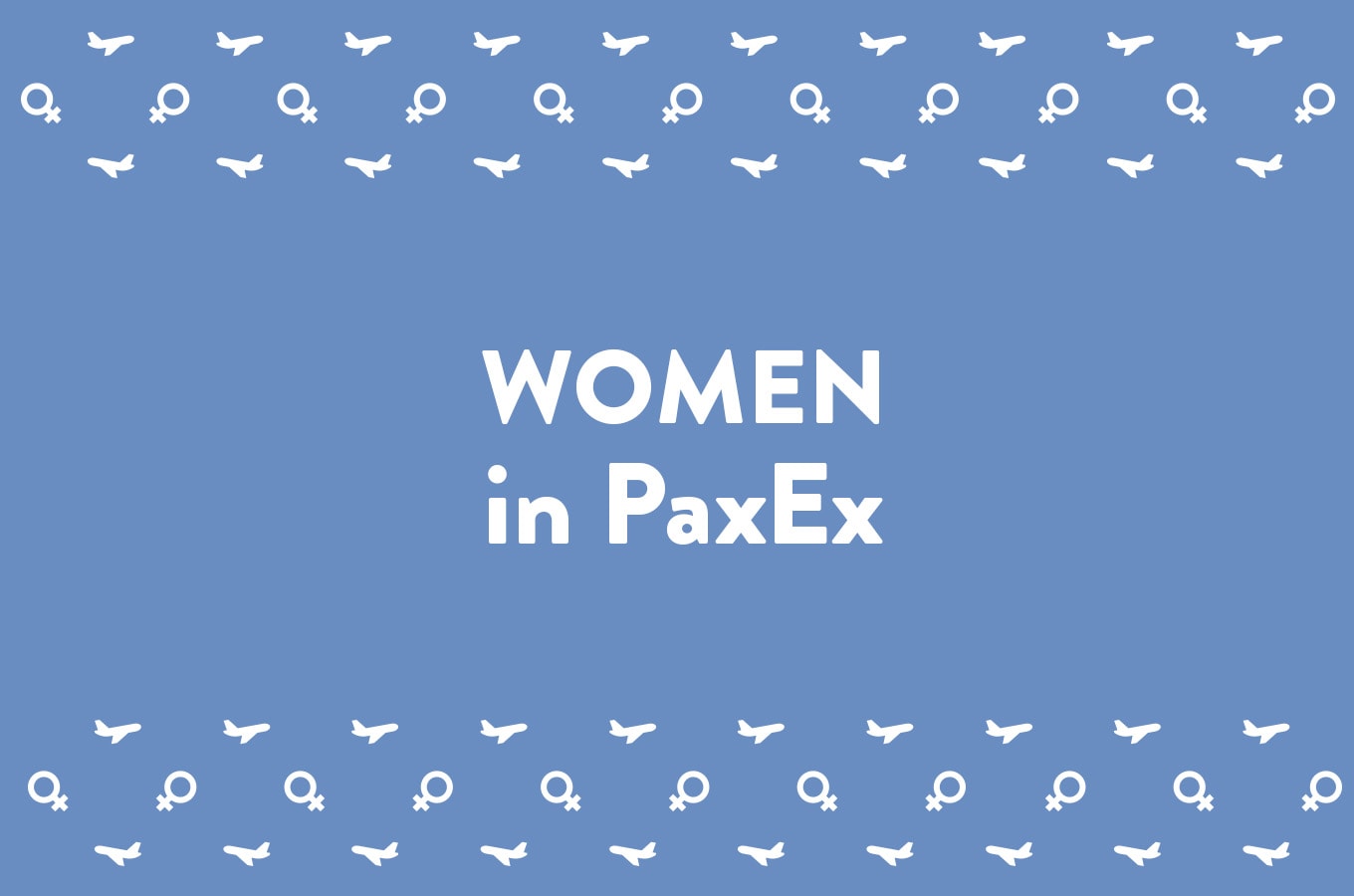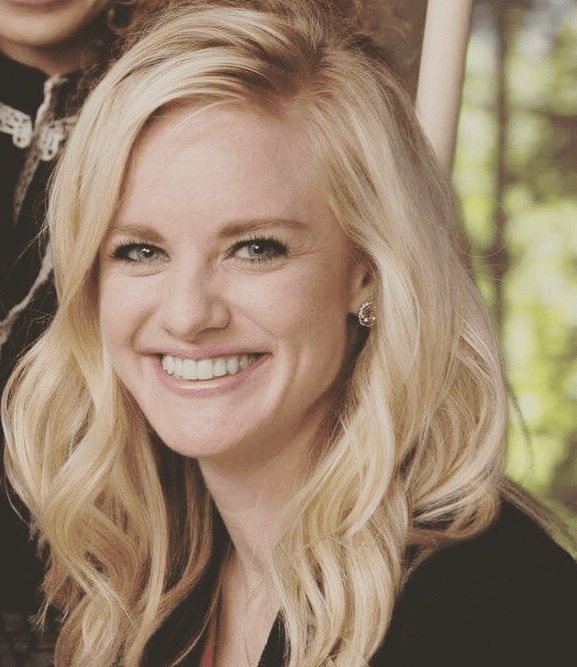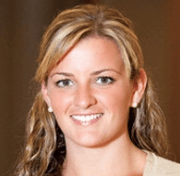Women in PaxEx: Working in a Male-Dominated Field
Share

While progress has been made toward narrowing the gender gap in the aviation industry – Farzaneh Sharafbafi became the first female CEO of Iran Air in July 2017 – the global labor force participation rate for women as of December 2017 was just over 49%, compared to 76% for men, according to the International Labor Organization. The Women in PaxEx series provides insight from women working in the airline passenger experience industry who are flying above the glass ceiling. This installment focuses on challenges women in the industry have faced and how they overcame them.
Cynthia Fitzgerald, Manager, Program Integration, OEM and Linefit, Gogo

Cynthia graduated with a Bachelor of Science in aeronautical and astronautical engineering, followed by a master’s degree in systems engineering from Purdue University. She worked in the military/defense industry for nine years and had many incredible opportunities to travel the world, supporting defense system installations and testing for international customers. She always carefully researches and chooses flight routes operated by Boeing 747s (her favorite commercial airplane) when traveling internationally!
Cynthia joined the commercial aerospace industry in 2015 as a Gogo employee and never looked back. At Gogo, she leads a team of program managers supporting linefit programs for North American OEMs. She has two dogs and enjoys supporting local animal organizations (One Tail at a Time, Shedd Aquarium and Lincoln Park Zoo, to name a few). She is currently planning a destination wedding in May and takes ballet classes with the Joffrey Ballet of Chicago as a hobby.
What’s it like working in a male-dominated industry?
Early on in my career, working in the military/defense industry, I never felt “equivalent” to my male counterparts. Perhaps it was the few years of industry experience I had, or my stature (young, petite female). This caused me to develop some pretty thick skin early on and helped fuel me to be the best at what I do so that while I wasn’t physically equivalent to my counterparts, I could command a room with the knowledge I had on a specific topic. This helped to build my confidence and gave me the motivation to push myself and consistently set personal goals so that I could advance and take command of my career.
“I could command a room with the knowledge I had on a specific topic.” €” Cynthia Fitzgerald, Gogo
Can you describe a challenge you faced in the industry as a woman and how you overcame it?
In college, I had initially applied to the School of Science as a physics major. Upon acceptance, I quickly realized that it was Aerospace Engineering that I wanted to pursue but the College of Engineering was already full. I had met with an academic advisor at the time and explained my strong desire to be an engineer and wanted to understand what I needed to do to transfer majors. Without looking at my academic records, I was immediately told that I didn’t have what it took. I realized I could sulk over it, or I could push myself over the next semester and go back to try again. Needless to say, I did just that and not only was I accepted, but I was one of three females in my class to graduate. I had two job offers (before I graduated) for a company that I had so badly wanted to work for in a location that I absolutely wanted to be in. From that point on, every time someone told me I couldn’t do it or held me back (which was quite often in my career), I pushed myself harder and proved them wrong.
Lauren Costello, Director, Programs & Services, APEX, and Executive Director, IFSA

Lauren Costello is executive director of the International Flight Services Association (IFSA), which serves airline and railway personnel, caterers and suppliers dedicated to the advancement of the multibillion dollar onboard services industry. She is responsible for the association’s operations, which include government affairs, communications, financial management and managing the client team based in Atlanta and Brussels.
For the past few years, she has also served as the director of Programs and Services for the Airline Passenger Experience Association (APEX). In this role, she develops content for international conferences and manages the association’s strategic planning, board relations, website and database, membership development and retention, communications, meeting planning and finances.
Lauren is a graduate of the State University of New York at Oswego, and has an MBA in management and a Bachelor of Arts in business administration/international business.
What’s it like working in a male-dominated industry?
While the aviation industry may tend to be male-dominated, I have the privilege of managing two associations, APEX and IFSA, which both have a female-dominant staff. I have been very lucky to work for and with ambitious women (and men) who have been very inspiring, enlightening, supportive and collaborative. I am proud to play a role in creating a supportive, smart team.
“I tend to believe that the aviation industry is very inclusive because, at its core, it is a customer service industry that aims to bring diverse people from around the globe together.” €” Lauren Costello, APEX and IFSA
Can you describe a challenge you faced in the industry as a woman and how you overcame it?
I am fortunate to have not faced any real challenges at work due to my gender. That said, when I travel for work, I have noticed varying cultural norms and inconsistencies in the way women are viewed around the globe.
I tend to believe that the aviation industry is very inclusive because, at its core, it is a customer service industry that aims to bring diverse people from around the globe together to learn and celebrate new traditions, conduct business and experience different cultures. This means we find ourselves collaborating with individuals of varying ages, sexes, races, ethnicities, nationalities and religions, more so than many other industries. I am therefore optimistic that those cultural differences and views, especially of women, will become increasingly blurred in the years ahead.
Patty Chang, Product Management, Global Mobile Broadband, Viasat

Patty Chang works in product management with Viasat’s Global Mobile Broadband division. She is responsible for defining, planning and launching the company’s products and services for business jet customers. Prior to her current role, Patty was part of Viasat’s commercial aviation team, where she focused on market strategy, product marketing and the delivery of retail and value-added in-flight connectivity services to commercial airlines.
Before joining Viasat, Patty was a senior product marketing manager at a semiconductor company, Entropic Communications, where she was responsible for the company’s access product line, which enabled broadband services over coaxial cable for fiber-to-the-home/curb deployments.
Patty earned a bachelor’s degree from the University of California, San Diego. Her most memorable moments at Viasat were launching the first successful Viasat retail in-flight Wi-Fi service on Virgin America and sponsorship promotions with Netflix, Spotify and LinkedIn.
What’s it like working in a male-dominated industry?
I’ve found there are always challenges and rewards in dealing with any person or group – gender aside. But specifically in male-dominated industries like aviation, I do believe females have more to prove, initially. To gain respect we must present with greater confidence, demonstrate competence and strive to be heard. Once these factors are established, I have found support and trust can be achieved in the workplace.
“I have found support and trust can be achieved in the workplace.” €” Patty Chang, Viasat
Can you describe a challenge you faced in the industry as a woman and how you overcame it?
Being credible is a big challenge women face in a male-dominated industry, especially when you’re the only woman in the meeting room. Early on in my career, I was mistaken as the secretary or assistant as some men were not used to interacting with women. I’ve overcome lack of credibility by becoming the subject matter expert in my field and clearly communicating my points of view with confidence.
Claudia Hellmann, Team Leader, Lufthansa Systems
Claudia started her professional career at Lufthansa Systems with an apprenticeship as a qualified IT specialist in 2001. After that she worked as a software test manager and project manager for airline IT projects. Afterwards, she became an IT service delivery manager. Since 2015, leadership has been her professional focus and, in 2016, she was promoted to team leader at Lufthansa Systems.
Can you describe a challenge you faced in the industry as a woman and how you overcame it?
Disagreeing with the ideas, initiatives or goals of people (especially men) at higher levels of power and authority and overcoming the status quo are challenges women in the industry face. It’s hard work for a woman to be heard, understood and valued for her input in that kind of situation. You have to be strong and focused to be accepted.
Maintaining Self-confidence, body language and poise under pressure can make or break your ability to succeed. Being aware of those qualities and applying them to overcome those challenges is important.
“Day care facilities for employees as well as flexible working models would be helpful.” €” Claudia Hellmann, Lufthansa Systems
What could the industry do better to encourage more women to join the aviation field?
Work-life balance is still the most important factor. Day care facilities for employees as well as flexible working models (e.g. home offices, trust-based working times) would be helpful to allow women to remain in a full-time role after motherhood if they want to.



